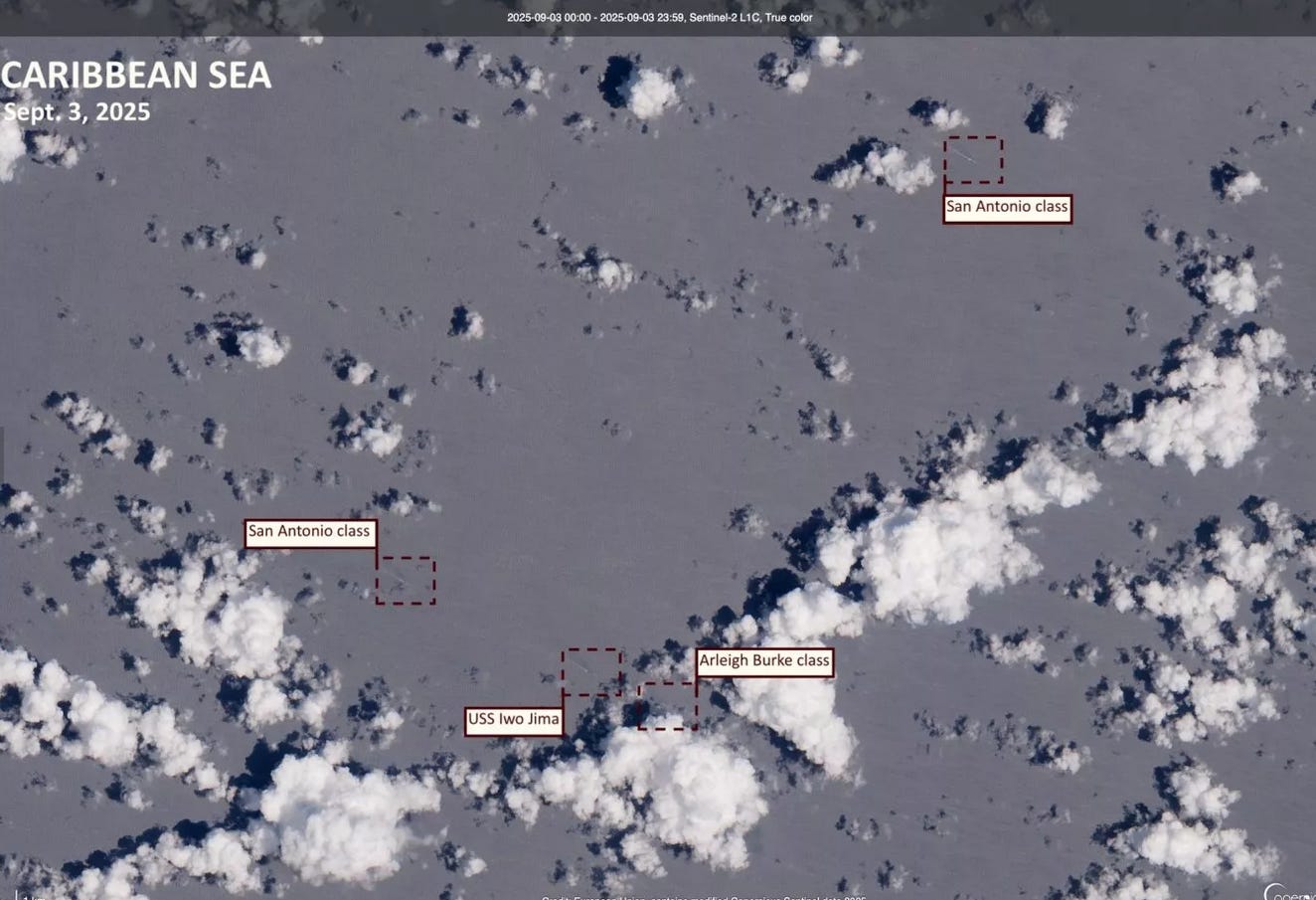On Venezuela and the Risks of an Overstretched Military
Drug Interdiction and Shaping Operations
Satellite imagery from the European Space Agency Satelite-2 showing American vessels off the coast of Venezuela. Retrieved from here
Trump is overstretching our military.
Our capabilities across domains are carefully arrayed against specific threats. We build war plans and contingencies years in advance and allocate resources accordingly. At the present moment, American forces are structured to fight one major theater war while maintaining strategic capabilities in another. For example, the United States can theoretically meet the military challenge of a country like Russia or China while simultaneously deterring other adversaries. The United States can maintain this posture while also managing a small number of contingency operations in other parts of the world. These contingencies can include the emergency evacuation of American citizens in response to a crisis abroad, or the delivery of humanitarian aid following a natural disaster.
When we aren’t actively fighting, we are training, …



